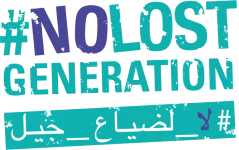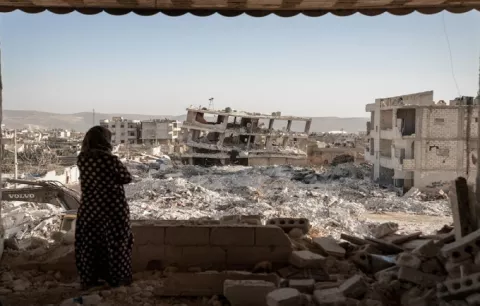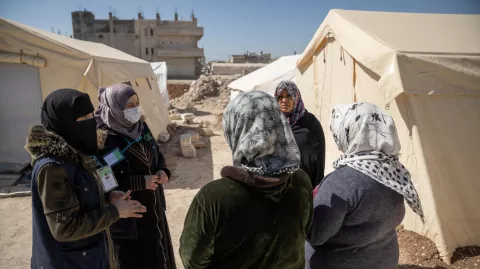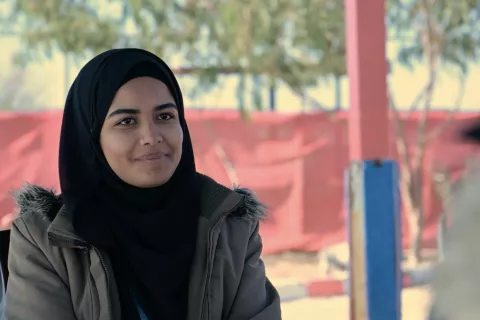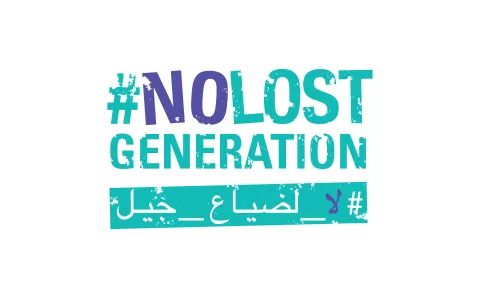Empowering children with disabilities in Aleppo
Caritas MONA
No Lost Generation is marking the 10th year of crisis inside Syria with a series of blog posts shedding light on the comparative situation of children. Publishing one blog post a day, we will underline the needs of children and youth affected by the Syrian crisis and share the experience of our partners responding to their plight. We need to redouble our efforts and rethink our interventions, to shape a better future for 10.7 million children.
The ongoing insecurity and the compounded impact of displacement in Syria, combined with worsening socio-economic conditions have prompted an increase of almost 20 per cent in the number of people in need compared to early 2020 - with a disproportionate impact on women and children.
Children and youth living with disabilities are particularly vulnerable. 15% of Syrian children aged 12 to 19 have a disability. Many have been heavily affected by the conflict. A 2018 report indicated that over 3.3. million children inside Syria were exposed to explosive hazards, which may cause serious injury, loss of limbs or death. Children with disabilities continue to be disproportionately underserved and to face important barriers to education or healthcare. For example, only 44% of children with disabilities aged between 12 and 17 are attending schools. They also face a heightened risk of abuse, neglect and exploitation and suffer from social stigma.
Caritas works to provide services to adults and children living with disabilities. Caritas Syria recently reopened its Center for Children with Disabilities in Aleppo, located on what used to be front lines during war. Everything, including the center, was destroyed or damaged. It was extremely challenging to open a center in a ghost area, but Caritas Syria’s determination to help children with disabilities is stronger than any obstacle.
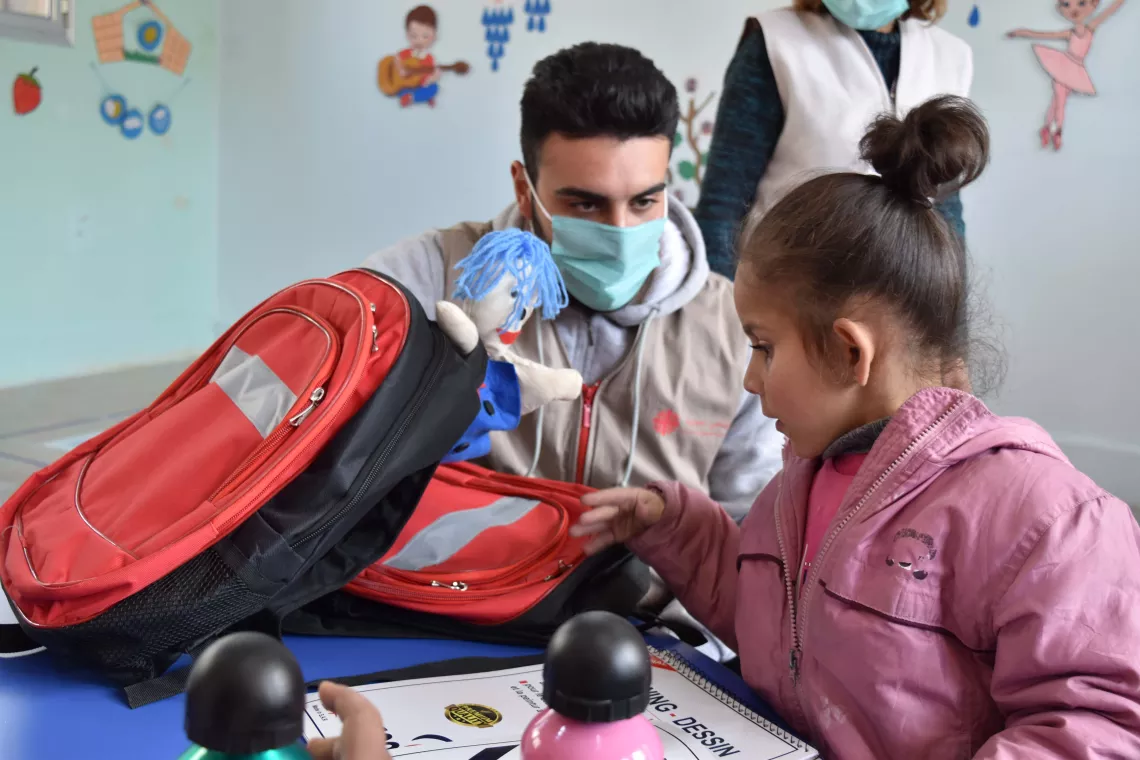
Caritas Syria works to ensure the best possible support for children living with a disability in Aleppo, in order to activate their participation in community life and to end their isolation.
In a matter of months, Caritas Syria was able to restore the center’s rooms and its infrastructure. “We needed this project for a long time, it is very important”, said Flavie, RHEP Project Coordinator. The project was well received by the local population. From the day the center reopened, families started to come and to register their children.
“I’ve been supporting children with disability for over 22 years, their smiles give me strength to do more”, said Rizqallah, a 65 year-old social worker at Caritas Syria, who previously worked for many local and Church based organizations to empower children living with disabilities.
The main challenge while working with children with disabilities is to ensure a safe environment for them, as some of them might hurt themselves or others. However, Caritas Syria’s social workers are trained and maintain a calm and relaxing atmosphere for children.
Many activities are organized in the center including a puppet show, drawings as well as games and interactive methods to teach and stimulate children. Recently, Caritas Syria – Aleppo Office distributed hygiene and school bags to children and taught them personal hygiene.
Happiness on children’s faces is indescribable. “Their smile is priceless, I wouldn’t trade it for the world”, said Victoria, social worker at Caritas Syria. Families are also supported every day, as a bus takes the children back and forth from their homes to the center. When they come home, they are happy to show their parents what they’ve learned at Caritas Syria.
Caritas Syria works to ensure the best possible support for children living with a disability in Aleppo, in order to activate their participation in community life and to end their isolation. As humanitarians, we need to double our efforts to provide services for children with disabilities and their families, especially in marginalized communities. They need to be part of the humanitarian response and it is our responsibility to ensure their access to quality services, including specialized services.
Caritas Internationalis is a confederation over 160 members who are working at the grassroots in almost every country of the world. When a crisis hit, Caritas is already on the ground. Inspired by Catholic faith, Caritas is the helping hand of the Church - reaching out to the poor, vulnerable and excluded, regardless of race or religion, to build a world based on justice and fraternal love.
Members of Caritas in the Middle East and North Africa work primarily on emergency response, migration, education, development, women empowerment, youth and volunteering, human trafficking and peace building. To find more information about Caritas MONA, visit their website and follow them on Facebook and Twitter.
